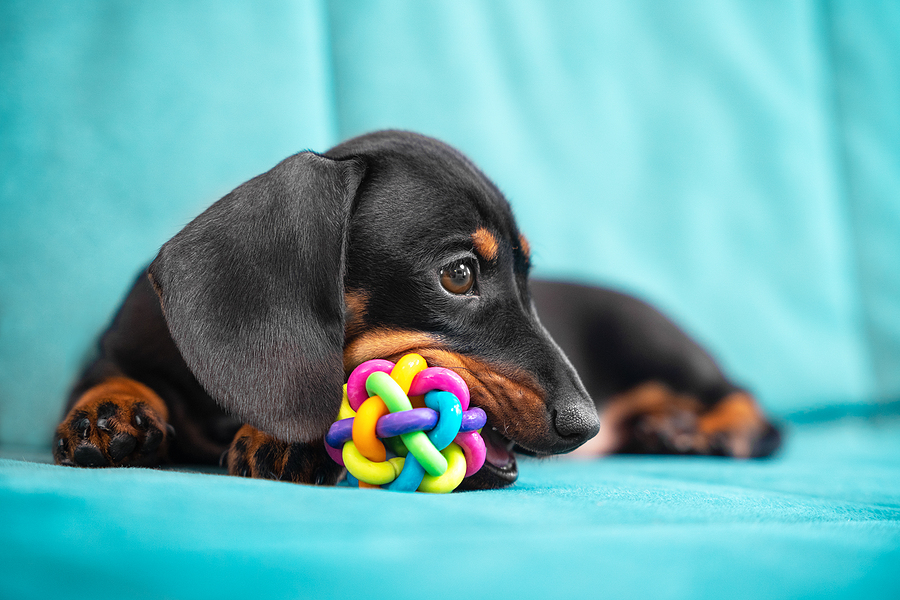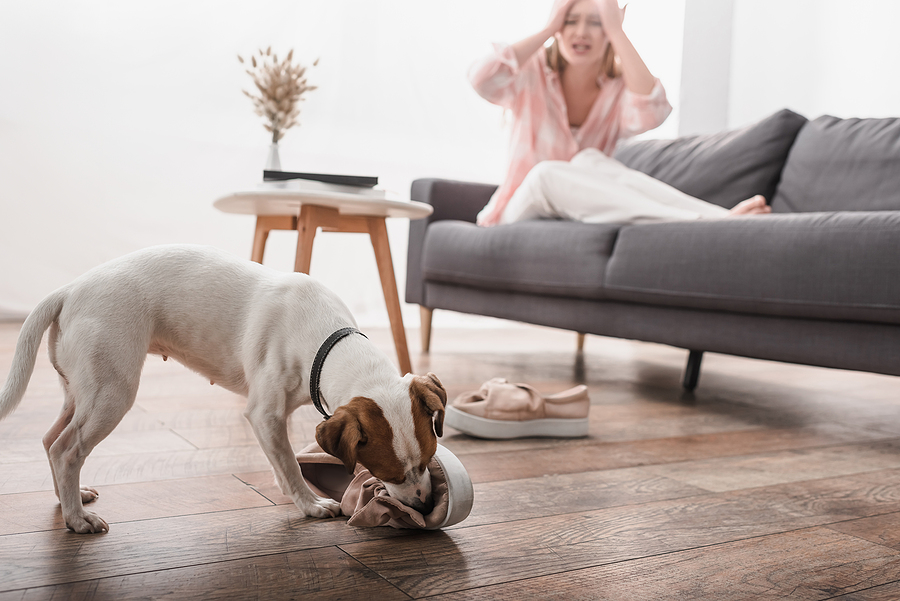We all cherish the heartwarming bond that we share with our four-legged companions. They’re more than just pets; they’re family, offering unconditional love and unending loyalty. However, like all relationships, there are sometimes quirks and hiccups along the way. One such hiccup many dog owners are familiar with is the not-so-desirable habit of dog chewing.
Chewing is as natural to dogs as barking. It’s not just a random act of rebellion or defiance. Understanding the causes and concerns behind dog chewing is the first step to addressing and potentially stopping the behavior.
Causes
Puppy Teething: Much like toddlers, puppies undergo a significant developmental stage where they transition from milk teeth to their permanent set. This period can be quite uncomfortable for them. As the new teeth push through the gums, it can cause soreness. Chewing helps soothe the discomfort they experience.
Boredom: Think of dogs as perpetual toddlers with boundless energy. If they aren’t provided with an outlet for this energy, they might find activities, like chewing, to pass the time. This isn’t necessarily out of mischief but a call for engaging in activities or companionship.
Dietary Needs: Dogs listen to their bodies. If they sense a deficiency in certain nutrients, they might resort to chewing on bizarre objects. This behavior, known as pica, can be a dog’s attempt to rectify what’s missing in their diet.
Exploration: Especially in their younger years, dogs are keen explorers. To them, the world is a vast array of smells, textures, and tastes. Dog chewing is one way they acquaint themselves with their surroundings, giving them tactile and taste information.
Concerns
Property Damage: From your favorite pair of shoes to that antique wooden table, dog chewing can potentially cause serious damage. It’s disheartening to come home and discover your cherished belongings in tatters.
Potential Health Risks: Beyond the immediate concern of property damage lies the graver risk of health issues. Consuming foreign objects like pieces of toys, certain plants, or electrical materials can lead to internal injuries, obstructions, or poisoning.
Behavioral Issues: A consistent pattern of unchecked dog chewing can cement the behavior, making it harder to rectify later. Over time, this can evolve into a chronic issue, with the dog failing to discern what’s appropriate to chew and what’s not. It’s important to set boundaries early on.

Solutions
Provide Appropriate Chew Toys: A diverse selection of dog toys can cater to your dog’s various chewing needs. From tough rubber toys that massage their gums to interactive ones that dispense treats, there are many options available. Regularly introducing new toys can maintain your dog’s interest.
Regular Exercise: A well-exercised dog is not only physically tired but mentally satiated. Through activities like walks, fetch, or agility training, you drain excess energy that might otherwise fuel destructive behaviors.
Training: Instilling basic commands can offer more control over dog chewing. Teaching them phrases like “drop it” or “leave it,” can be particularly useful when they start chewing something inappropriate.
Dog-proof Your Home: Consider it akin to baby-proofing. By removing or securing tempting items, you minimize the chances of your pet getting into mischief. Keep valuable items and potential dangers well out of their reach.
Provide Mental Stimulation: Mental fatigue is as effective as physical. Engaging toys, like puzzle feeders or scent games, challenge your dog’s cognitive abilities, keeping them occupied in constructive activities.
Consult a Veterinarian: Sometimes, underlying health issues or dietary deficiencies might be the culprit behind excessive chewing. Regular check-ups and discussions about your dog’s diet and behavior can ensure they’re on the right track health-wise
Consider Professional Training: If your dog’s chewing habit is particularly stubborn, you might want to consider professional training to nip the behavior in the bud.

Need Help to Stop Dog Chewing?
While dog chewing is natural, it doesn’t mean you have to live with chewed-up shoes and furniture forever. By understanding the causes and addressing the concerns proactively, you can guide your dog toward healthier chewing habits.
At Beau’s K9 Academy, we understand the challenges and joys of dog ownership. If you need assistance or advice regarding your dog’s chewing habits or any other issues, we offer behavior modification training and a host of other training programs. Our goal is to ensure that the bond between you and your canine companion remains strong, loving, and free of unnecessary stress. Contact us today!

